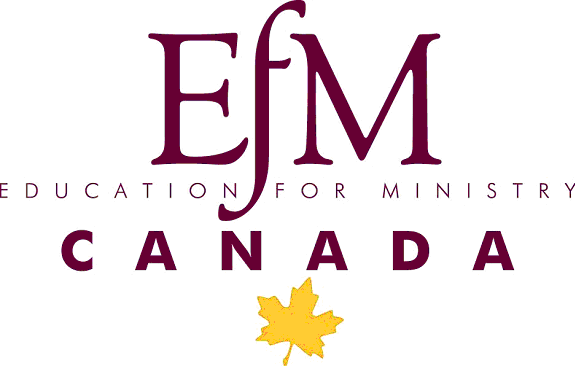
Many folks at St. A's have taken the four year EFM program. You know them because they are some of the most involved and engaged folks of the church. Even during covid, the program continues. Find out more below!
Registration is open until July 15: https://edmonton.anglican.ca/news/education-for-ministry-efm-registration-open
J+
___
As fellow seekers, I would like to invite you to consider the Education for Ministry course which will be starting via Zoom this fall. EFM is one of the defining choices in my Christian life. I wish I had done it decades earlier. I ask you to take a couple of minutes to read (below) my experience with the program. Without reservation, I encourage anyone who is seeking to know more about Christianity and explore their mission in the church to sign up. You will be rewarded and empowered. The course was developed by the Episcopal School of Theology at the University of the South in Sewanee Tennessee. There are groups all across the country. In the Diocese of Edmonton the program is coordinated by the Rev. Robin Walker.
If you are interested or wish to find out more about the program, contact EFM Mentor, June Miller, M.Div., at 780 447-2593.
If you know someone who may be interested feel free to pass along the information.Links you may wish to explore
(via Dan McCosh)
My journey through EFM Marion and Dorothy, fellow lay readers at St. David’s encouraged me to sign up for Education for Ministry. Its not meant to be a prelude to a MDiv or the diaconate, they told me. Rather it would give me a well-rounded understanding of Hebrew and Christian scriptures, Church history and theology. Although I had taught Sunday School and been involved in lots of study and discussion groups, I longed for a more wholistic, comprehensive understanding and an opportunity to clarify my relationship with God. The course did not disappoint. It was incredible to actually read through the two testaments over two years, a feat that I had never been able to complete. The supporting books and discussions created clarity about the context, issues and theology of those texts. I had little understanding of church history and how the many liturgical and theological components of our and other Christian churches developed. It was fascinating to work through “the first three thousand years” in Diarmaid MacCulloch’s book. The focus of the final year was on developing a personal conception of God through our understanding of the culture, our study of scripture and our personal experiences. This was most life altering year as I worked through the my many competing and poorly focussed thoughts. It also helped me to recognize that other religions have sought to define the same God and deal with the same issues in the world around them. The outcome of it all for me was a more confident and capable lay reader ministry and a thirst to continue to expand my knowledge. I am even exploring the idea of completing an a master’s degree, now that I am more confident that I have a foundational understanding. Others found their ministry in social justice, in evangelism, in hospitality in helping the needy. What was common for us all was the realization of what our ministry would be. What plans God had for us. But there is more. A key part of the program is the development of skills in theological reflection (a process in which an individual or small group reflects on their personal or collective experience(s) in light of their faith). This has given me the ability to address issues which I am confronted with in the secular world and explore how I as a Christian might react. And that is not all. You develop a close relationship with those who you complete the program with, disciples for Christ, people with whom you can share you journey beyond EFM, people from whom you can seek advice and direction when you are confronted with choices, people with whom you can celebrate your missions when your paths cross.

